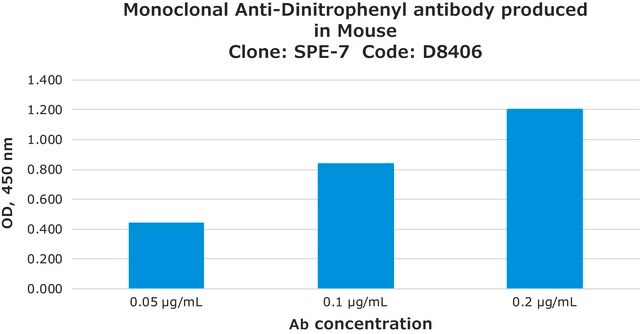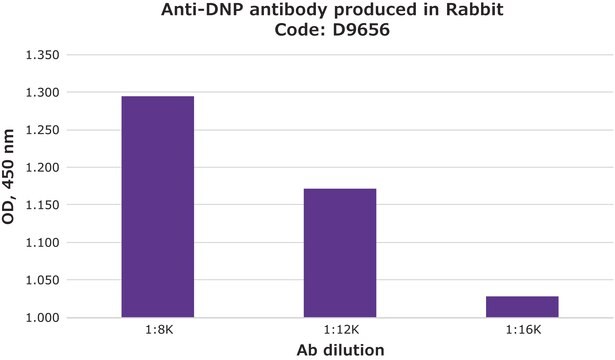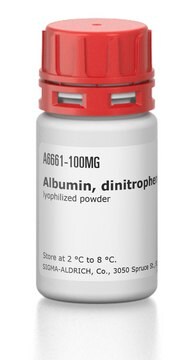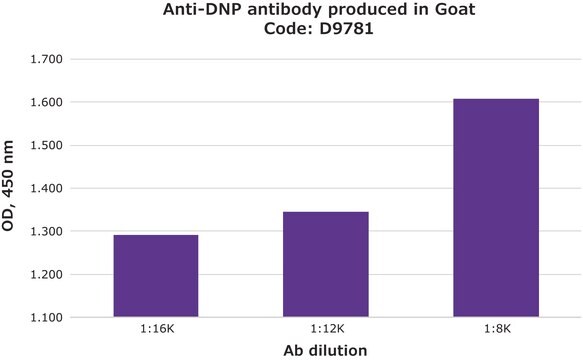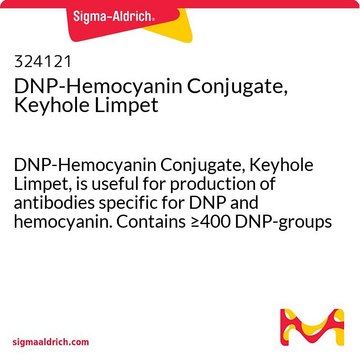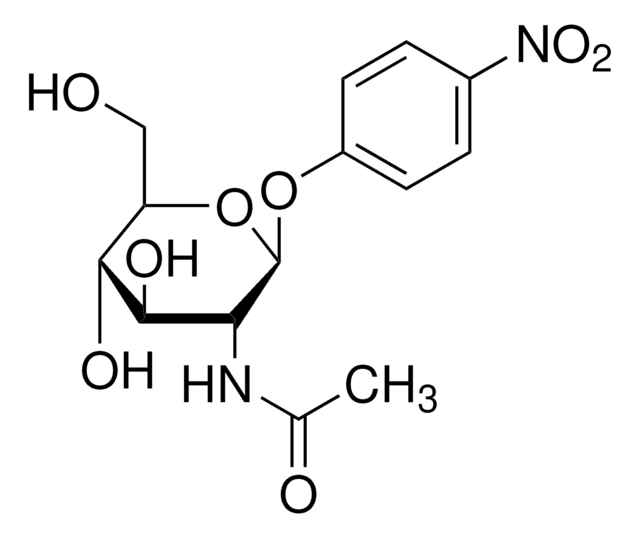Kluczowe dokumenty
A2831
Monoclonal Anti-DNP−Alkaline Phosphatase Conjugate antibody produced in mouse
clone SPE-7, purified immunoglobulin, buffered aqueous glycerol solution
Synonim(y):
Anti-Dinitrophenyl, Monoclonal Anti-DNP
About This Item
Polecane produkty
pochodzenie biologiczne
mouse
Poziom jakości
białko sprzężone
alkaline phosphatase conjugate
forma przeciwciała
purified immunoglobulin
rodzaj przeciwciała
primary antibodies
klon
SPE-7, monoclonal
Postać
buffered aqueous glycerol solution
metody
direct ELISA: 1:25,000 using DNP-BSA
dot blot: 1:180,000 (chemiluminescence)
izotyp
IgE
Warunki transportu
wet ice
temp. przechowywania
2-8°C
docelowa modyfikacja potranslacyjna
unmodified
Szukasz podobnych produktów? Odwiedź Przewodnik dotyczący porównywania produktów
Opis ogólny
Immunogen
Zastosowanie
Postać fizyczna
Komentarz do analizy
Oświadczenie o zrzeczeniu się odpowiedzialności
Nie możesz znaleźć właściwego produktu?
Wypróbuj nasz Narzędzie selektora produktów.
Kod klasy składowania
10 - Combustible liquids
Klasa zagrożenia wodnego (WGK)
WGK 3
Temperatura zapłonu (°F)
Not applicable
Temperatura zapłonu (°C)
Not applicable
Środki ochrony indywidualnej
Eyeshields, Gloves, multi-purpose combination respirator cartridge (US)
Certyfikaty analizy (CoA)
Poszukaj Certyfikaty analizy (CoA), wpisując numer partii/serii produktów. Numery serii i partii można znaleźć na etykiecie produktu po słowach „seria” lub „partia”.
Masz już ten produkt?
Dokumenty związane z niedawno zakupionymi produktami zostały zamieszczone w Bibliotece dokumentów.
Nasz zespół naukowców ma doświadczenie we wszystkich obszarach badań, w tym w naukach przyrodniczych, materiałoznawstwie, syntezie chemicznej, chromatografii, analityce i wielu innych dziedzinach.
Skontaktuj się z zespołem ds. pomocy technicznej